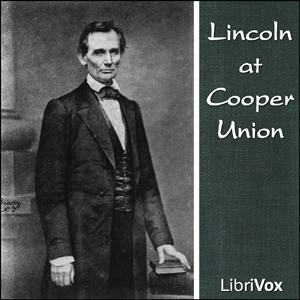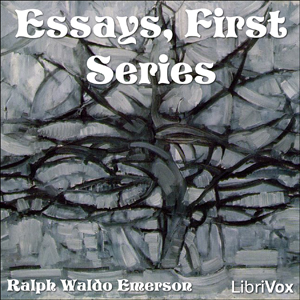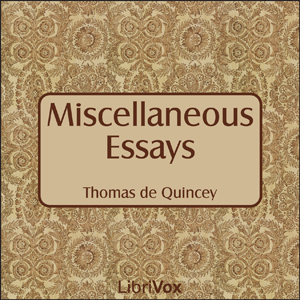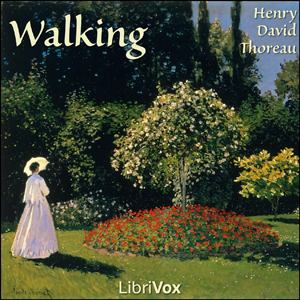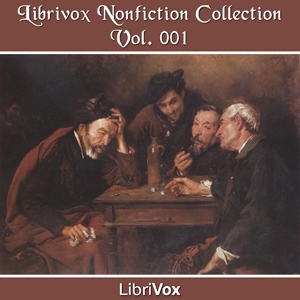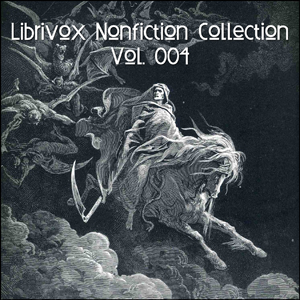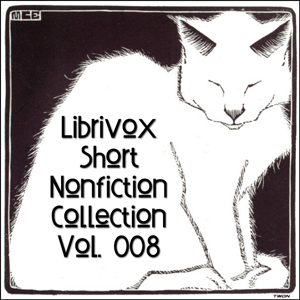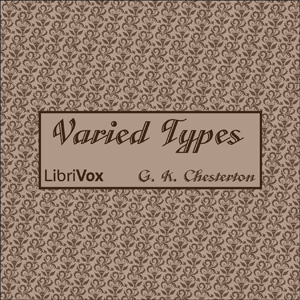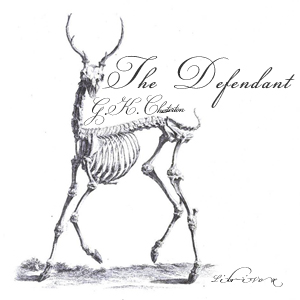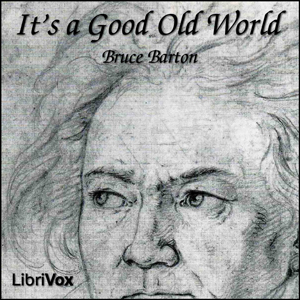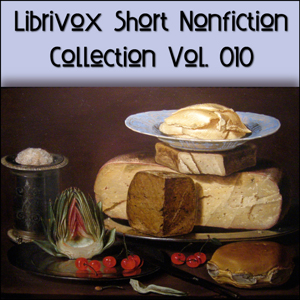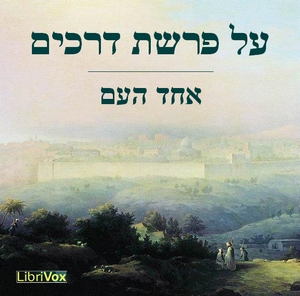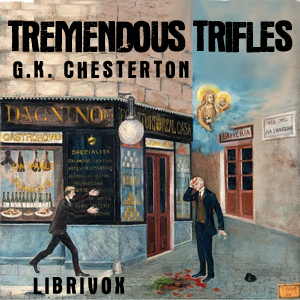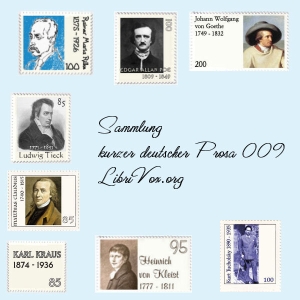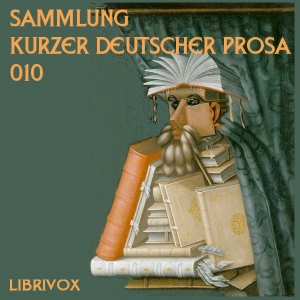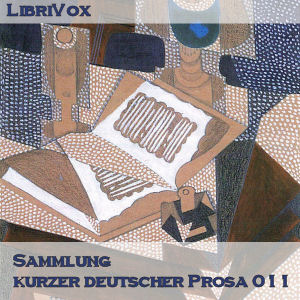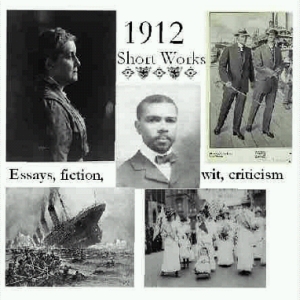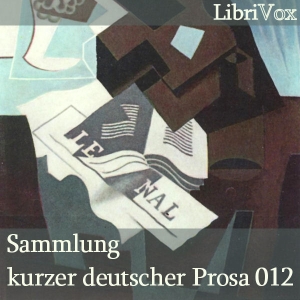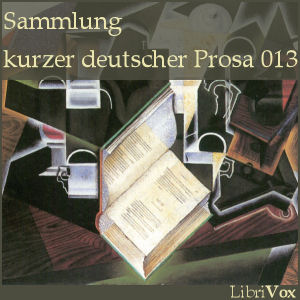On 27 February 1860, Abraham Lincoln gave this address at the Cooper Union in New York City. When he gave the speech, Lincoln was considered by many to be just a country lawyer. After he gave the speech, he soon became his party's nominee for president.
(Summary by henkelsc)
1 episodes
Text of the speech given by Brewster Kahle, founder of the Internet Archive, at the launch of the Open Library in October 2005. LibriVox was invited to the launch, and produced audio recordings for "An International Episode," and "Old Christmas," two of the first books scanned into the Open Library collection. (Summary by Hugh)
1 episodes
This account by Trotsky is of the events in Russia from the October Revolution of 1917 in Petrograd, to his signing of the Brest-Litovsk treaty with Germany on 3rd March 1918 which took Russia out of the First World War. The treaty exacted heavy losses for Russia in terms of annexations of land and financial indemnities to Germany. In this extended essay, Trotsky argues the reasons as to why he decided to sign what appears to be a disastrous agreement for Russia.
(Summary by Rebecca)
27 episodes
“We live in succession, in division, in parts, in particles. Meantime within man is the soul of the whole; the wise silence; the universal beauty, to which every part and particle is equally related, the eternal ONE. And this deep power in which we exist and whose beatitude is all accessible to us, is not only self-sufficing and perfect in every hour, but the act of seeing and the thing seen, the seer and the spectacle, the subject and the object, are one. We see the world piece by piece, as the sun, the moon, the animal, the tree; but the whole, of which these are shining parts, is the soul”. (From Essay 9, ‘The Over-Soul’)
12 episodes
Civil Disobedience is an essay by Henry David Thoreau. Published in 1849 under the title Resistance to Civil Government, it expressed Thoreau’s belief that people should not allow governments to overrule or atrophy their consciences, and that people have a duty both to avoid doing injustice directly and to avoid allowing their acquiescence to enable the government to make them the agents of injustice. Thoreau was motivated in part by his disgust with slavery and the Mexican-American War. (Summary from Wikipedia).
2 episodes
The Hunter Thompson of the 19th Century, de Quincey is best known for his Confessions of an English Opium Eater (an activity shared with his hero, Samuel Coleridge, much to Wordsworth’s dismay). However, de Quincey’s literary genius is best captured in his essays, which, according to Wikipedia: His immediate influence extended to Edgar Allan Poe, Fitz Hugh Ludlow and Charles Baudelaire, but even major 20th century writers such as Jorge Luis Borges admired and claimed to be partly influenced by his work. (written by TTM)
17 episodes
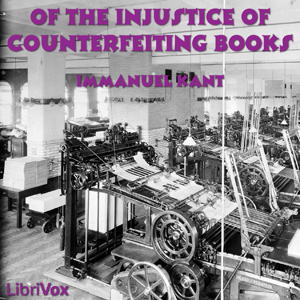
This essay of Kant’s on copyright argues that the unlicensed copying of books cannot possibly be permissible, due to the fact that it assumes a consent on the part of the author which it is logically impossible for the author to give. The argument is dependent upon an assumption that the writings be commodified, for the reason why the author is unable to possibly give consent to multiple publishers is due to the author’s will – to communicate with the public – necessitating the profitability of the publisher, for, it is assumed, there is no way to communicate with the public at large without a great expense which can only be borne by a publishing firm. This is, of course, no longer a necessary assumption. Other arguments here are also of interest: this is a foundational document in claims regarding the moral rights of authors, and Kant’s account of the connection between the communicative intent of the author and the rights resultant is of continuing importance (even though it is not often taken into account in contemporary debates, and has only a tenuous relation to contemporary copyright law); the distinction between works and acts in the “Universal Observation” (the third section of the essay) strikes us as odd today, but is worthy of consideration; his admission of the permissibility of derivative works is striking; and, strangely, the first footnote uses as a reductio ad absurdum an idea of liability which underlies what United States law today calls by the name of “contributory infringement.” (Summary by D.E. Wittkower)
1 episodes
This was originally a lecture given by Thoreau in 1851 at the Concord lyceum titled "The Wild" . He revised it before his death and it was included as part of the June 1862 edition of Atlantic Monthly. This essay appears, on the surface, to be simply expounding the qualities of Nature and man's place therein. Through this medium he not only touches those subjects, but with the implications of such a respect for nature, or lack thereof. (Summary by Chris Masterson)
2 episodes
A collection of ten short essays or other short nonfiction works in the public domain read by Librivox volunteers.
10 episodes

A collection of ten short nonfiction works in the public domain. The essays, speeches and reports included in this collection were independently selected by the readers, and the topics encompass history, politics, religion, science and humor. Included in this collection are the "Oath of Hippocrates" and "The Funeral Oration of Pericles" along with Patrick Henry's "The Call to Arms," and Jack London's eyewitness account of the aftermath of the San Francisco earthquake in 1906. On the lighter side, we have Jerome K. Jerome's "Should Women Be Beautiful," a short address by Mark Twain to The Author's Club in NYC, and the anonymous "Miseries," a lighthearted lament on subjects such as the difficulties of eating a peach gracefully in public and finding a suitable length of twine when you need one. In this collection you will also find "A Free Man's Worship" by Bertram Russell, "Obstacle-Cause" from "Sophisms of the Protectionists" by Frédéric Bastiat, and an essay by T. H. Huxley on the science of palaeontology. (summary by J. M. Smallheer)
10 episodes
A collection of eleven short nonfiction works in the public domain. The items included in this collection were independently selected by the readers, and the topics encompass history, conservation, philosophy, politics, religion and cooking. Included in this collection are Thomas Jefferson's first Inaugural Address, "Secession" by Alexander H. Stephens, "Of Truth" and the preface to "The New Organon, or True Directions Concerning the Interpretation of Nature" by Francis Bacon, John Donne's last sermon delivered in March 1631, "On Old Age" by Cicero, a chapter from "The Fight for Conservation" by Gifford Pinchot, The Sacredness of Work" by Thomas Carlyle and an essay "On the Unjust Causes of War" by Hugo Grotius. On the lighter side, try selections from "Cocoa and Chocolate Recipes" by Miss Parloa and a 1912 article from Scientific American on the amazing escapes of Harry Houdini. (summary by J. M. Smallheer)
11 episodes
A short Christmas book by American author, educator, and clergyman Henry Van Dyke, including a short story, two essays, and two prayers for the season. (summary by Jan MacGillivray)
4 episodes
In this celebration of diversity, learn about the myriad histories and cultures behind our volunteers. (summary by Eric Ray)
18 episodes

In American Notes, Rudyard Kipling, the Nobel Prize-winning author of the Jungle Book, visits the USA. As the travel-diary of an Anglo-Indian Imperialist visiting the USA, these American Notes offer an interesting view of America in the 1880s.Kipling affects a wide-eyed innocence, and expresses astonishment at features of American life that differ from his own, not least the freedom (and attraction) of American women. However, he scorns the political machines that made a mockery of American democracy, and while exhibiting the racist attitudes that made him controversial in the 20th century concludes “It is not good to be a negro in the land of the free and the home of the brave.”G. A. England of Harvard University (letter to The New York Times 10/11/1902) wrote: “To the American temperament, the gentleman who throws stones while himself living in a glass house cannot fail to be amusing; the more so if, as in Mr Kipling’s case, he appears to be in a state of maiden innocence regarding the structure of his own domicile.”(Summary by Tim Bulkeley with Quotations from the Gutenberg edition of American Notes and the online version of The New York Times of October 11th 1902.)
8 episodes
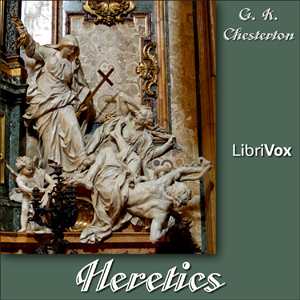
The Author Gilbert Keith Chesterton was born in London, England on the 29th of May, 1874. Though he considered himself a mere "rollicking journalist," he was actually a prolific and gifted writer in virtually every area of literature. A man of strong opinions and enormously talented at defending them, his exuberant personality nevertheless allowed him to maintain warm friendships with people--such as George Bernard Shaw and H. G. Wells--with whom he vehemently disagreed. Chesterton had no difficulty standing up for what he believed. He was one of the few journalists to oppose the Boer War. His 1922 "Eugenics and Other Evils" attacked what was at that time the most progressive of all ideas, the idea that the human race could and should breed a superior version of itself. In the Nazi experience, history demonstrated the wisdom of his once "reactionary" views.Chesterton wrote several works of Christian apologetics, the best known of which are "Orthodoxy", "Heretics", and "The Everlasting Man". (Summary from Project Gutenberg)
21 episodes
These eleven files are miscellaneous short essays or stories from G.K. Chesterton. They were chosen for not only their brevity but also for being shining exemplars of Chesterton's wit and whimsy. A fun but powerful introduction into the mind of the man that is G.K. Chesterton. (Summary by GK Cleveland)
9 episodes
Gilbert Keith Chesterton was an influential English writer of the early 20th century. His prolific and diverse output included journalism, philosophy, poetry, biography, Christian apologetics, fantasy, and detective fiction. Chesterton has been called the "prince of paradox." He wrote in an off-hand, whimsical prose studded with startling formulations. Chesterton wrote about 4000 essays on various subjects, and "Alarms and Discursions is one of his collections. (Summary adapted from Wikipedia by Karen Merline.)
13 episodes
A collection of fifteen short nonfiction works in the public domain. The essays, speeches, news items and reports included in this collection were independently selected by the readers, and the topics encompass history, politics, philosophy, nature and religion.
15 episodes
Gilbert Keith Chesterton was among the world's most prolific writers who incorporated relentless logic, wonderful humor, and a clear view of truth into an amazing tool for exposing the foolishness of the policies of the world around him through the device of paradox.
It is always great fun, and certainly always a learning experience to read Chesterton. A Miscellany of Men may be his hardest work to define, as it deals with a huge array of issues, using "personal types" as illustration. It would only be bewildering, if there was not these common threads: First that these types still exist, and the same faulty reasoning applies to issues of our day, and second, that underlying all of this is a firm and reasoned defense of democracy in a sense very close to that of the American Founding Fathers. (Summary by Ray Clare)
13 episodes
Another delightful and sharply pointed excursion into the topics of the day, and of our day as well, with Gilbert Keith Chesterton. Here he uses his wit and mastery of paradox to bring into focus a number of historical persons who in many ways typify the people who presently shape our world and who in their own right have already shaped Western civilization. These reprinted magazine articles are filled with his good-natured wit and devastating ability to use reductio ad absurdum to destroy the popular myths that drive our society at full-speed into, and expose the utter nonsense that underlies, secular humanism. You will come away with yet another new collection of wonderful quotes.
(Summary by Ray Clare)
20 episodes
Diese Sammlung umfasst verschiedene deutschsprachige Texte aller Genres, Fiktion, Non-Fiktion und Lyrik.
Eine Liste weiterer kurzer Aufnahmen (Erzählungen, Gedichte, Märchen, Essays) in anderen LibriVox Sammlungen gibt es hier."Die Morithat" übersetzt von Georg von Ompteda (1863-1931)
10 episodes
Diese Sammlung umfasst verschiedene deutschsprachige Texte aller Genres, Fiktion, Non-Fiktion und Lyrik.
Eine Liste weiterer kurzer Aufnahmen (Erzählungen, Gedichte, Märchen, Essays) in anderen LibriVox Sammlungen gibt es hier."Christbaum und Hochzeit" übersetzt von Alexander Eliasberg (1878-1924)"Rosa" übersetzt von Georg von Ompteda (1863-1931)
10 episodes
A collection of reprinted articles on a wide-range of subjects, all in the unique style of G. K. Chesterton. Using wit, paradox, and good humor he “defends” a series of seeming harmless things that need no defense, and in so doing he exposes many of the broken assumptions and dogmatic notions of secular humanism and other trends of his age and of ours. (Summary by Ray Clare)
18 episodes

Faces and Places is a collection of articles on nineteenth century travel, events and personalities by the British journalist Henry Lucy, who wrote for the Daily News, a London newspaper. His open letter To Those About to Become Journalists rings as true today as when it was written.The first article, "Fred" Burnaby, includes a lively account of a balloon trip, while Night and Day on the Cars in Canada and Easter on Les Avants relate Lucy's experiences of rail travel at that time. Other travel tales (A Night on a Mountain, Mosquitoes and Monaco, and Oysters and Arcachon) provide an insight into the Victorian Englishman's attitude to Europe.Three of the pieces, With Peggotty and Ham, A Cinque Port and Christmas Eve at Watts's, concern the county of Kent, where Lucy had a country house. Christmas Eve at Watts's contains an interesting exposé of Dickens' short story The Seven Poor Travellers.Other articles are of historical interest: A Wreck in the North Sea is an account of the wreck of the ship "Deutschland" in 1875; A Historic Crowd describes the massive popular interest in the 1871 trial of the Tichborne Claimant; The Battle of Merthyr contains an eye-witness account of the Merthyr Riots of 1831; The Prince of Wales paints a portrait of the future King Edward VII.Lucy, who also wrote as "Toby, M.P." for the satirical magazine Punch, loved to poke gentle fun, particularly at the establishment, and this is especially evident in A Peep at an Old House of Commons and Some Preachers I Have Known.This eclectic collection, mostly affectionately humorous, but with moments of great pathos, was originally published in 1892 in The Whitefriars Library of Wit & Humour.(Summary by Ruth Golding)
17 episodes

Chesterton and Shaw were famous friends and enjoyed their arguments and discussions. Although rarely in agreement, they both maintained good-will towards and respect for each other. However, in his writing, Chesterton expressed himself very plainly on where they differed and why. In Heretics he writes of Shaw:
“After belabouring a great many people for a great many years for being unprogressive, Mr. Shaw has discovered, with characteristic sense, that it is very doubtful whether any existing human being with two legs can be progressive at all. Having come to doubt whether humanity can be combined with progress, most people, easily pleased, would have elected to abandon progress and remain with humanity. Mr. Shaw, not being easily pleased, decides to throw over humanity with all its limitations and go in for progress for its own sake. If man, as we know him, is incapable of the philosophy of progress, Mr. Shaw asks, not for a new kind of philosophy, but for a new kind of man. It is rather as if a nurse had tried a rather bitter food for some years on a baby, and on discovering that it was not suitable, should not throw away the food and ask for a new food, but throw the baby out of window, and ask for a new baby.”
Shaw represented the new school of thought, humanism, which was rising at the time. Chesterton's views, on the other hand, became increasingly more focused towards the church. In Orthodoxy he writes:
“The worship of will is the negation of will. . . If Mr. Bernard Shaw comes up to me and says, "Will something," that is tantamount to saying, "I do not mind what you will," and that is tantamount to saying, "I have no will in the matter." You cannot admire will in general, because the essence of will is that it is particular. (Summary from Wikipedia)
14 episodes
In this collection of essays, Bruce Barton, considered to be among the most influential advertising men of the 20th century, uses history, religion and current events of the 1920s to teach common sense ideals. From Jesus to Beethoven to Napoleon to Abraham Lincoln, Barton uses stories of great individuals to encourage the reader to make the most of life and at the same time to build strong character traits. (Summary by Stephen Escalera)
7 episodes
“Unless we are all mad, there is at the back of the most bewildering business a story: and if we are all mad, there is no such thing as madness. If I set a house on fire, it is quite true that I may illuminate many other people's weaknesses as well as my own. It may be that the master of the house was burned because he was drunk; it may be that the mistress of the house was burned because she was stingy, and perished arguing about the expense of the fire-escape. It is, nevertheless, broadly true that they both were burned because I set fire to their house. That is the story of the thing. The mere facts of the story about the present European conflagration are quite as easy to tell." (Summary by Gilbert Keith Chesterton)
8 episodes
A collection of fifteen short nonfiction works in the public domain. The essays, speeches, news items and reports included in this collection were independently selected by the readers, and the topics encompass history, politics, philosophy, nature and religion. Included in this collection are
15 episodes
Most Eugenists are Euphemists. I mean merely that short words startle them, while long words soothe them. And they are utterly incapable of translating the one into the other, however obviously they mean the same thing. Say to them "The persuasive and even coercive powers of the citizen should enable him to make sure that the burden of longevity in the previous generation does not become disproportionate and intolerable, especially to the females"; say this to them and they will sway slightly to and fro like babies sent to sleep in cradles. Say to them "Murder your mother," and they sit up quite suddenly. Yet the two sentences, in cold logic, are exactly the same. (Summary by Gilbert Keith Chesterton)
17 episodes
Le « Dictionnaire des idées reçues » : recueil d’exemples de l’intelligence humaine qui se dépasse elle-même. Les temps changent ; ce genre d’intelligence, non. Flaubert nous fait des clins d’œil depuis sa tombe – et ceci durera certainement jusqu’à la fin des temps… (Par Didier)
19 episodes
Asher Zvi Hirsch Ginsberg (1856 - 1927), primarily known by his Hebrew name and pen name Ahad Ha'am (literally "one of the people"), was a Hebrew essayist and one of the greatest pre-state Zionist thinkers. With his secular vision of a Jewish "spiritual center" in Palestine he confronted Theodor Herzl. Unlike the founder of political Zionism he strove for "a Jewish state and not merely a state of Jews."In 1889 his first article criticizing practical Zionism, called "Lo ze haddereckh" (This is not the way), appeared in HaMelitz. The ideas in this article became the platform for Bnai Moshe (sons of Moses), a group he founded that year. Bnai Moshe, active until 1897, worked to improve Hebrew education, build up a wider audience for Hebrew literature, and assist the Jewish settlements. This article was the first in a collection of essays published in book form in 1895 (At the Crossroads). The following is a selection from this book. (summary from Wikipedia)
24 episodes
This short book was written in 1920, and in it Chesterton, with his usual wit and incisive logic, presents a series of articles defending marriage and indicating the weaknesses in divorce. He did this 16 years before the first Christian denomination in the world allowed its members to divorce. Till then Christendom was unanimous in standing against it. Chesterton saw clearly the trends of this time, and delivered this defense. (Summary by Ray Clare)
9 episodes
InThis is an essay providing an extended analysis of the works of Norwegian playwright Henrik Ibsen and of Ibsen's critical reception in England. Shaw uses this "exposition of Ibsenism" to illustrate the imperfections of British society, using the idea of an imaginary "community of a thousand persons," divided into three categories: Philistines, Idealists, and the lone Realist.
The main discussion revolves around Ibsen's recurring topic of the strong character holding out against social hypocrisy, while stating in his essay's final sentence that the quintessence of Ibsenism is that "there is no formula." ( Michele Eaton)
19 episodes
Diese Sammlung umfasst verschiedene deutschsprachige Texte aller Genres, Fiktion, Non-Fiktion und Lyrik.
Eine Liste weiterer kurzer Aufnahmen (Erzählungen, Gedichte, Märchen, Essays) in anderen LibriVox Sammlungen gibt es hier.
"Elternmord" übersetzt von Georg von Ompteda (1863-1931)
10 episodes
“None of us think enough of these things on which the eye rests. But don't let us let the eye rest. Why should the eye be so lazy? Let us exercise the eye until it learns to see startling facts that run across the landscape as plain as a painted fence. Let us be ocular athletes. Let us learn to write essays on a stray cat or a coloured cloud. I have attempted some such thing in what follows; but anyone else may do it better, if anyone else will only try. ” (Gilbert Keith Chesterton)
39 episodes
A collection of informal essays about books in his library. He combines commentary, translations, and humorous asides about authors and their subjects
27 episodes

“Now I have said again and again (and I shall continue to say again and again on all the most inappropriate occasions) that we must hit Capitalism, and hit it hard, for the plain and definite reason that it is growing stronger. Most of the excuses which serve the capitalists as masks are, of course, the excuses of hypocrites. They lie when they claim philanthropy; they no more feel any particular love of men than Albu felt an affection for Chinamen. They lie when they say they have reached their position through their own organising ability. They generally have to pay men to organise the mine, exactly as they pay men to go down it. They often lie about the present wealth, as they generally lie about their past poverty. But when they say that they are going in for a "constructive social policy," they do not lie. They really are going in for a constructive social policy. And we must go in for an equally destructive social policy; and destroy, while it is still half-constructed, the accursed thing which they construct.” (Summary from Gilbert Keith Chesterton, d. 1936)
13 episodes
Diese Sammlung umfasst 10 deutschsprachige Prosa-Texte verschiedener Genres.
Eine Liste weiterer kurzer Aufnahmen (Erzählungen, Gedichte, Märchen, Essays) in anderen LibriVox Sammlungen gibt es hier.
"Das schwatzende Herz" übersetzt von Theodor Etzel
10 episodes
Eliezer Izhak Perlman (1858-1922) signed his articles as E. Ben Yehuda. He was a key figure in the revival of Hebrew as a spoken language. He regarded Hebrew and Zionism as symbiotic: "The Hebrew language can live only if we revive the nation and return it to the fatherland," he wrote. Ben Yehuda wrote essays and articles preaching for the use of Hebrew at schools and at home. His was the first family to do so, but it took more than 20 years before there were 10 more families in Jerusalem who spoke only Hebrew at home. Ben Yehuda was the editor of several Hebrew-language newspapers and became the driving spirit behind the establishment of the Committee of the Hebrew Language, later The Academy of the Hebrew Language, an organization that still exists today. He was also the author of the first modern Hebrew Dictionary coining a large number of new words, many of them in use today. The following is a selection of his articles. (Summary by Omri Lernau following Wikipedia.)
19 episodes

"Second, when telling such lies as may seem necessary to your international standing, do not tell the lies to the people who know the truth. Do not tell the Eskimos that snow is bright green; nor tell the negroes in Africa that the sun never shines in that Dark Continent. Rather tell the Eskimos that the sun never shines in Africa; and then, turning to the tropical Africans, see if they will believe that snow is green. Similarly, the course indicated for you is to slander the Russians to the English and the English to the Russians; and there are hundreds of good old reliable slanders which can still be used against both of them. There are probably still Russians who believe that every English gentleman puts a rope round his wife's neck and sells her in Smithfield. There are certainly still Englishmen who believe that every Russian gentleman takes a rope to his wife's back and whips her every day. But these stories, picturesque and useful as they are, have a limit to their use like everything else; and the limit consists in the fact that they are not true, and that there necessarily exists a group of persons who know they are not true. It is so with matters of fact about which you asseverate so positively to us, as if they were matters of opinion." (Gilbert Keith Chesterton)
10 episodes
Diese Sammlung umfasst 10 deutschsprachige Prosa-Texte verschiedener Genres.
Eine Liste weiterer kurzer Aufnahmen (Erzählungen, Gedichte, Märchen, Essays) in anderen LibriVox Sammlungen gibt es hier.
10 episodes
“Let me begin my American impressions with two impressions I had before I went to America. One was an incident and the other an idea; and when taken together they illustrate the attitude I mean. The first principle is that nobody should be ashamed of thinking a thing funny because it is foreign; the second is that he should be ashamed of thinking it wrong because it is funny.” (Gilbert Keith Chesterton)
32 episodes
Diese Sammlung umfasst 10 deutschsprachige Prosa-Texte verschiedener Genres.
Eine Liste weiterer kurzer Aufnahmen (Erzählungen, Gedichte, Märchen, Essays) in anderen LibriVox Sammlungen gibt es hier.
"Der Alte" übersetzt von Georg von Ompteda (1863-1931)
10 episodes
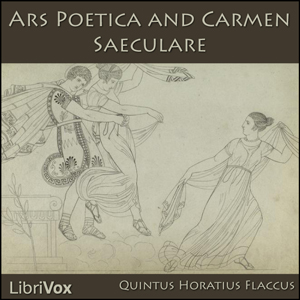
The Ars Poetica, by Horace, also known as Epistula ad Pisones, is a treatise on poetry written in the form of a letter, and published around 18 B.C. In it, Horace defines and exemplifies the nature, scope and correct way of writing poetry. This work, inspired by the book of the same name by Aristotle, is one of the most influential in Latin literature, and the source of famous concepts in poetics, such as "in medias res" and "ut pictura poesis". The text itself is a poem in 476 dactilic hexameters.The Carmen Saeculare, or "Song of the Ages", is a hymn written by Horace in 17 b.C. for the Ludi saeculares of the same year. It is believed that the poem was commissioned by the Emperor Augustus and sung by a choir of young men and women during the opening ceremony of the Games of the Century, a religious celebration that happened in Rome once every saeculum (century). The saeculum was considered to be the maximum length of a human life, which means the Games happened once every generation. The poem was written is nineteen sapphic stanzas, and in an elevated and religious tone. (Summary by Leni)
7 episodes
A collection of fifteen short nonfiction works in the public domain. The essays, speeches and reports included in this collection were independently selected by the readers, and the topics encompass humor, history, politics, science medicine, nature, finance, cooking, film and religion. (summary by J. M. Smallheer)
15 episodes
This is a collection of public domain works either published in 1912, or written in 1912 and published before 1923. The accent is on non-fiction but I will include short stories, poems, one-act plays, as well. (Summary by Bellona Times)
Read and compiled by Bellona Times. Proof-listeners were Betsie Bush and Tricia G.
20 episodes
Diese Sammlung umfasst 10 deutschsprachige Prosa-Texte verschiedener Genres.
Eine Liste weiterer kurzer Aufnahmen (Erzählungen, Gedichte, Märchen, Essays) in anderen LibriVox Sammlungen gibt es hier.
"Mondschein" und "Der Krüppel" übersetzt von Georg von Ompteda (1863-1931)
10 episodes
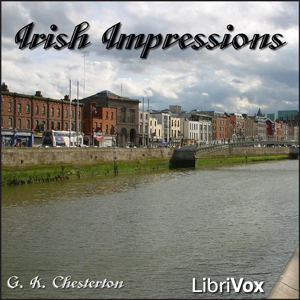
“For the Irish Question has never been discussed in England. Men have discussed Home Rule; but those who advocated it most warmly, and as I think wisely, did not even know what the Irish meant by Home. Men have talked about Unionism; but they have never even dared to propose Union. A Unionist ought to mean a man who is not even conscious of the boundary of the two countries; who can walk across the frontier of fairyland, and not even notice the walking haystack. As a fact, the Unionist always shoots at the haystack; though he never hits it. But the limitation is not limited to Unionists; as I have already said, the English Radicals have been quite as incapable of going to the root of the matter. Half the case for Home Rule was that Ireland could not be trusted to the English Home Rulers. They also, to recur to the parable, have been unable to take the talking cow by the horns; for I need hardly say that the talking cow is an Irish bull. What has been the matter with their Irish politics was simply that they were English politics. They discussed the Irish Question; but they never seriously contemplated the Irish Answer.” (- Gilbert Keith Chesterton)
9 episodes
Diese Sammlung umfasst 10 deutschsprachige Prosa-Texte verschiedener Genres.
Eine Liste weiterer kurzer Aufnahmen (Erzählungen, Gedichte, Märchen, Essays) in anderen LibriVox Sammlungen gibt es hier.
10 episodes
“When a man weighs anchor in a little ship or a large one he does a jolly thing! He cuts himself off and he starts for freedom and for the chance of things. He pulls the jib a-weather, he leans to her slowly pulling round, he sees the wind getting into the mainsail, and he feels that she feels the helm. He has her on a slant of the wind, and he makes out between the harbour piers.” (quotation from Hilaire Belloc)
41 episodes
